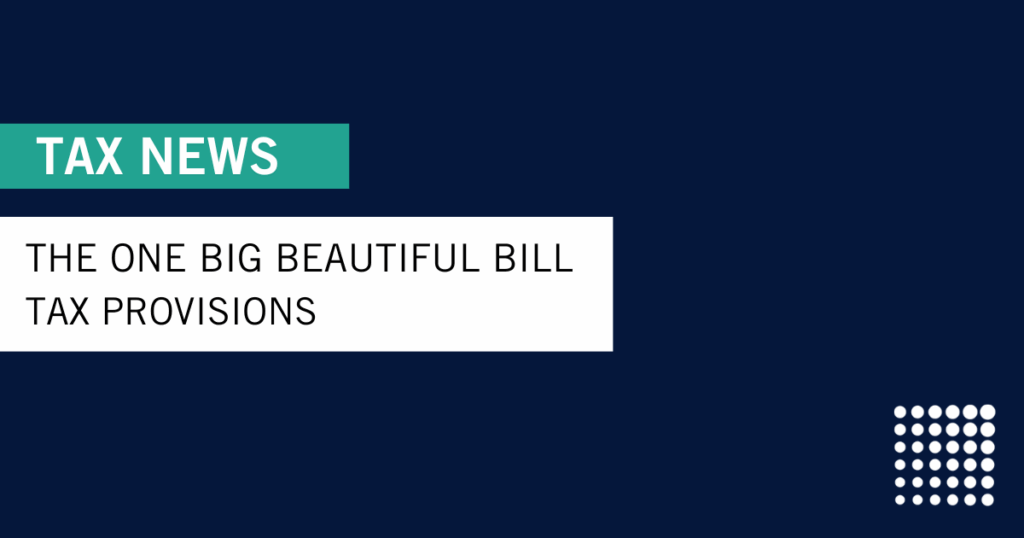The dos and don’ts of IRS communication
Every year the IRS mails letters or notices to taxpayers for many different reasons. Typically, it’s about a specific issue with a taxpayer’s federal tax return or tax account, for example missing income on a return or tax payments that were marked as paid on a return, yet the IRS does not have record of. A notice may tell them about changes to their account or even ask for more information.
“A notice from the IRS doesn’t necessarily need to be a reason to panic,” Tax Director Kristina Yarbrough reminds. “Most commonly it is a simple notice of updated information that doesn’t require any action from the recipient.”
However, regardless of severity, there are steps that you need to take should you receive communication from the IRS.
IRS Communication Methods
The very first thing to do when you receive communication from the IRS is to ensure it is legitimate and not a scam. The easiest first line of defense is to consider the method of communication. The IRS initiates most contact with taxpayers through regular mail delivered by the U.S. Postal Service.
The IRS does not initiate contact with taxpayers by email, text messages or social media channels to request personal or financial information. This includes requests for PIN numbers, passwords or similar access information for credit cards, banks or other financial accounts.
IRS employees may make official and sometimes unannounced visits to discuss taxes owed or returns due as a part of an audit or investigation. Taxpayers generally will first receive a letter or notice from the IRS in the mail. IRS employees may call taxpayers to set up appointments or discuss audits but not without first attempting to notify taxpayers by mail.
IRS employees will not demand that people use a specific payment method, such as a prepaid debit card, gift card or wire transfer. The IRS will not ask for debit or credit card numbers over the phone. For people who owe taxes, make payments to the U.S. Treasury or review IRS.gov/payments for secure IRS online options.
Six Steps to Take
If you do receive mail from the IRS, do not panic. Most of the time all you need to do is review the letter carefully and take the appropriate next action. Follow these steps to help you get started:
- Don’t ignore it. Most IRS letters and notices are about federal tax returns or tax accounts. Each notice deals with a specific issue and includes specific instructions on what to do.
- Don’t throw it away. Keep all notices or letters you receive from the IRS. You may need to refer to these when filing your 2021 tax return in 2022. In general, the IRS suggests that taxpayers keep records for three years from the date they filed the tax return.
- Do review the information. If a letter is about a changed or corrected tax return, you should review the information and compare it with the original return. If needed, make notes about the corrections on your personal copy of the tax return and keep it for your records.
- Do take timely action. A notice may reference changes to your account, taxes owed, a payment request or a specific issue on a tax return. Acting timely could minimize additional interest and penalty charges.
- Do respond to a disputed notice. If you don’t agree with the IRS, reply by mail explaining why you dispute the notice. Mail it to the address on the contact stub included with the notice. Include information and documents for the IRS to review when considering the dispute. You should also send a copy of any notice you receive to your tax preparer. They will review it and give you guidance on the steps to take..
- Don’t reply unless instructed to do so. There is usually no need to reply to a notice unless specifically instructed to do so. On the other hand, if you owe, you should reply with a payment. IRS.gov has information about payment options.
The mail you receive from the IRS will include a notice or letter number on it. You can find the notice (CP) or letter (LTR) number on either the top or the bottom right-hand corner of your correspondence. Your notice or letter will explain the reason for the contact and give you instructions on how to handle the issue. Visit this IRS page to search for your notice or letter number.
If you believe the notice or letter you received looks suspicious, contact the IRS at 800-829-1040. If you determine the notice or letter is fraudulent, please follow the IRS assistor’s guidance or visit their Report Phishing page for next steps.
Notice of Audit and Examination
Although it is rare, most people fear that a letter from the IRS is concerning an audit. If you are getting audited, a Notice of Audit and Examination Scheduled will be issued. This notice is to inform you that you are being audited by the IRS and will contain details about the particular items on your return that need review. It will also mention the records you are required to produce for review. Should you receive one of these letters, contact your tax advisor.
A trusted tax advisor can offer peace of mind to business owners in circumstances like these, as you prepare for year-end or anytime. Learn more about our tax planning services here.














